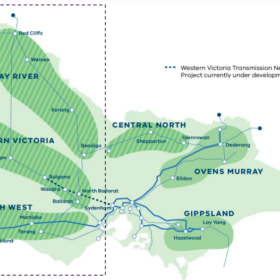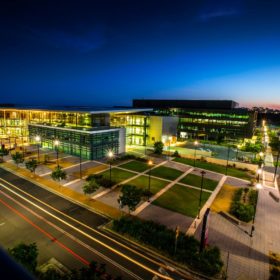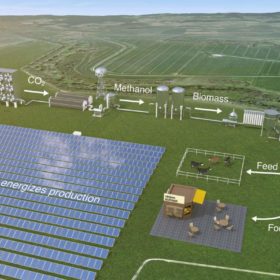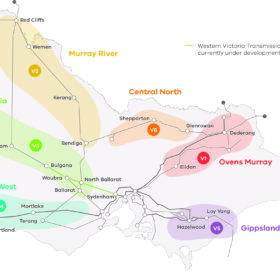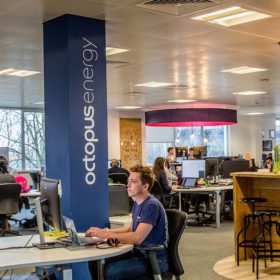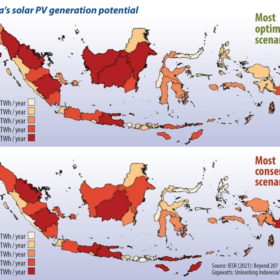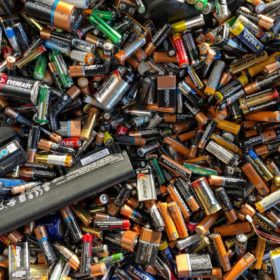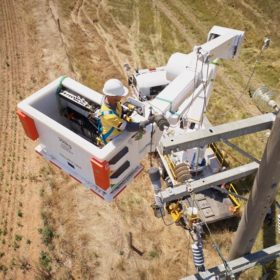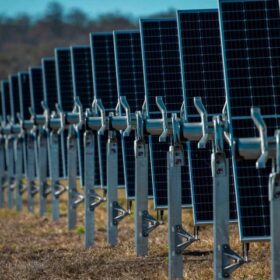REZ wriggle on – Queensland and Victoria seek input
Both Victoria’s and Queensland’s state governments are moving on their renewable energy zones (REZs) with tight deadlines looming for hopeful projects in Victoria, while further north the government is eager to hear from local communities.
IPCC report issues blunt 2030 climate warning
The world authority on climate change, the Intergovernmental Panel on Climate Change, has issued its Sixth Assessment Report, the most scathing yet, declaring our current trajectory of global warming will reach 1.5C by 2030. The report makes clear the heightened climatic effects of climate change will only increase, with the transition to renewable energies our only hope.
Saturday read: Going full circle with battery recycling
With manufacturing ramping up year by year and policies already looking to get ahead of the large volumes of end-of-life products, the landscape for lithium-ion battery recycling is rapidly changing. pv magazine recently spoke with Mari Lundström, associate professor of chemical and metallurgical engineering at Aalto University, to find out what is needed on the research side for the effective recycling of batteries.
Laying foundations for transformation: Queensland startup answers need for grid digitalisation
Patrick Matweew, CEO of Australian startup Luceo Energy, is fully aware grid digitalisation stirs fervour in the hearts of few. It is, nonetheless, perhaps the single most important step in realising our clean energy future. “It’s not spoken about enough because it sits in that little niche. There might be other things that are a little bit more sexy, but this is really where the fundamentals get put in place to enable [everything else],” he told pv magazine Australia.
Solar-powered large scale microbial food production
Producing nutrient-rich microbes with solar PV has the potential to produce more food with fewer resources, according to a German research group that modelled the large-scale production of microbial biomass by combining ground-mounted photovoltaics, air, water, and nutrients.
Victorian government plans six grid ‘shock absorber’ projects for REZ’s clean energy influx
The Victorian government has commissioned the Australian Energy Market Operator (AEMO) to seek tenders for six new grid upgrade projects to prepare for the influx of clean energy associated with the state’s western Renewable Energy Zones (REZs).
How Origin can pull the plug on gas and top Australia’s clean-energy leader board!
Australia’s big energy providers are being forced to take stock of the costs of fossil fuels versus renewables. One industry analyst and commentator has a fresh recipe for success for Australia’s biggest wholesaler and retailer of gas.
Sunday read: Indonesia’s coal exit plan
Indonesia, the second-biggest coal exporter in the world, is now taking more steps to reduce its dependency on “black gold” as it starts to consider clean energy.
Federal government launches Battery Stewardship Scheme
Assistant Minister for Waste Reduction and Environmental Management, Trevor Evans, has announced a newly accredited Battery Stewardship Scheme that he says will triple the battery collection rate over a period five years and divert 90% of the collected materials from landfill.
Spark welcomes takeover talks as buyout bid reaches $5.2 billion
Australian electricity network owner Spark Infrastructure looks set to be sold off after it declared it will welcome other acquisition proposals if a $5.2 billion takeover bid launched by a North American investment consortium fails.
